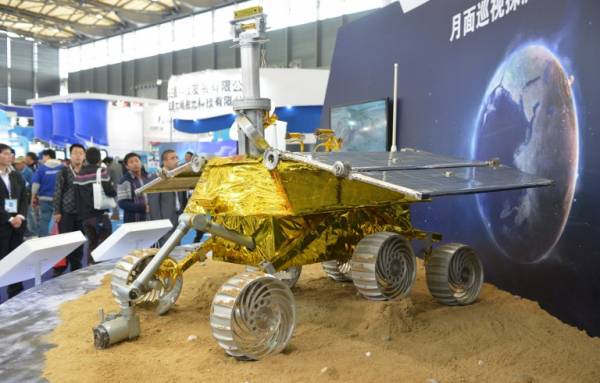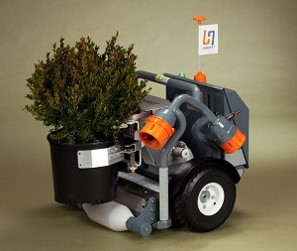How does growing up in a war environment affect a child's views and emotions?
Growing up in a warfare environment can affect a child in many ways depending on his or her experiences. It's different for the child whose parents are in the war versus the child of a secure, wealthy upper class family who don't have to worry about being ambushed by soldiers are having his or her parents taken away in the middle of the night. War can be emotionally scarring and may lead to intense fear or loss of trust in humanity, at least that's what I believe. After the war, children can be victims of PTSD where they have recurring phases of flashbacks of traumatic events. On the flip side, children may grow up thinking that war is just a part of everyday life or that it is justified. Some children may end up wanting to fight in the war if another family member influences them or they feel a sense of patriotism towards their country/the need to fight. The possibilities are limitless, but in the end, I think that everyone is a victim of warfare. Children lose their parents, their loved ones, a life that could be spent living happily. And for those not directly involved with the war, they may lose sight of morality or fail to recognize that there are less fortunate individuals who are suffering.-Rachel Chung
 The "Jade Rabbit" Picture: AFP PHOTO/Peter PARKS On Monday, December 1, 2013, China will launch its first moon rover mission. The rover, named “Yutu” or “Jade Rabbit,” is set to blast off 1:30 AM from the Xichang Satellite Launch Center in Sichuan province. The name is derived from the ancient Chinese myth about a white rabbit that lives on the moon as the pet of Chang’e, the lunar goddess who consumed an immortality pill. The Chinese believe that their origins are represented by the marks left on the moon’s landscape. For example, the black areas on the moon are where the moon palace, osmanthus trees, and a jade rabbit are found. The “Jade Rabbit” is equipped with several technological breakthroughs, including its autonomous navigation system and wheels that can grip the moon’s powdery surface. It can also climb inclines up to 30 degrees and travel 200 meters per hour. Although China is still straggling behind the US and Soviet Union in the Space Race, China is catching up quickly to its counterparts. By 2020, China hopes to create a permanent space station and eventually send an astronaut to the moon. For more information, please click on the following link http://www.enca.com/technology/china-launch-maiden-moon-mission-Rachel Chung
My friend (he goes to Stanford now... yuck!) plays in a piano festival! I wish I could play this well. 0:
Jordan Wong
Prompt: Can robots take care of babies in a nursery? How would this affect their development and how would it compare to human interaction?
Although it would be really helpful for working parents and release more labors from the task of nursery if robots can take care of babies, it is still not a good idea to let robots replace the in charge humans.
Fist of all, each baby is unique. Therefore, it’s extremely hard to design universal programs of robots, which cover possible responses of all babies. Customized robots, however, will cost much more than hiring a real human to take of the baby.
Second, once designed, robots generally cannot react effectively to unpredicted accidents. There are so many uncertainties on babies’ behaviors and it could be really dangerous if the robots fail to protect babies from potential injuries. Even if the robots are intelligent enough to “learn” new skills and “adapt” to different conditions while interacting, it’s still too risky to let the robot “learn” how to take of the a baby by itself during the process of nursery.
Last but not least, robots, unlike human beings, have no emotions or empathy. When interacting with robots, babies can hardly feel being loved or being cared about. Even if taking care of babies is really time-consuming and painstaking, it is necessary and significant to establish a bond between the parent and the baby and instill a caring personality of the baby by spending time together. Babies raised by robots, however, will lose such bond and vital characteristics. Therefore, they may grow up as indifferent, cruel and inhuman adults, which could be really harmful for both themselves and the whole society.
--Jiaqi Liu
For decades, robots have been used for manufacturing and working with nonliving things such as cars, tools, and food processing. However, the Harvest vehicle is now taking care of living things: plants in the nursery.
Can you imagine robots taking care of babies in a nursery? How would this affect their development and how would it compare to human interaction?
-Justin Chow
How does growing up in a war environment affect a child's point of view and expression of emotions?
-Justin Chow
One night the house is shot into
and a grenade is thrown into.
The translation is rough.
She doesn’t conceive of herself
in the first person or the third.
She never thinks “I did this”
or “she felt that.”
She simply
remembers
“in the fall, moved away,”
“ran to the store that morning,”
“breathed,”
“heard.”
She is very young at the time of
the attack, only six.
She has no idea
why someone would shoot or
throw a grenade into the house
or why the family’s chickens
would run away only
to reappear
asleep
in the branches of lychee trees
in the woods behind the house.
Her parents are unsurprised.
Farmers have always trained their chickens
to run skyward up tree trunks.
When soldiers come calling,
as they have for a thousand years,
something
always survives.
- Justin Chow
I stumbled upon this article and found it really interesting. It talks about the standard for Asian beauty and how it compares to Western standards of beauty. It doesn’t have much to do with science, technology, and magic but it does talk about Asian American culture, and since I know there are a lot of Asian and Asian American girls in our class I thought you all might be interested. http://www.xojane.com/issues/fat-for-an-asian-the-pressure-to-be-naturally-perfect- Michelle Fong
Hey Everyone,
I'd just like to share one of the poems I wrote about love. I noticed that after I wrote it isn't a traditional love poem, but more like a satire of what "love" means to most men. (Sorry boys). Anyway, when I was writing this, I just kept thinking about how in some marriages even today, women are only "loved" by their husbands if they follow social orders that tell them to be silent, weak, and submissive---which sorry to say...we are most definitely, not! So, without further ado, I present my poem entitled "He loves me, he loves me not"
HE LOVES ME, HE LOVES ME NOT
He loves me
When I’m beside him, behind him.
That’s where he loves me, following his lead.
Beside him, behind him.
He loves me not.
When I venture out on my own.
When I surpass him, or prove myself capable
Without him.
He loves me
When I’m silent.
When I stand beside him, behind him, as a
Pretty painted face.
Silent.
Always, pretending that I have nothing to say.
He loves me not,
When I break that silence.
When I let my voice drown him,
overpower him.
Because he knows I can.
He loves me,
Because of the fact that I’m biologically built as a woman.
And socially constructed to be submissive and weak.
But he loves me not
Because he knows I’m my own person,
Then and now.
And forever
'till death do us part.
-Abigail Huliganga
Wow. The Last Fall is a student-made animation that I stumbled upon on Youtube a few months back. All I can say is that this is ethereal and beautifully animated. This is a story about a girl and her father struggling to escape a rather antagonistic colony of robots who seem to harvest human bodies. The overlapping of dream and reality and dark, heavy undertone bring the animation to life as the graphics craft a subtle complexity in the relationship between father and daughter.
This animation is one of my favorite videos on Youtube (along with some silly ones like this: But that was irrelevant.)
Back on topic, I thought that The Last Fall captured perfectly what we are studying in class, and is also a captivating video to watch.
- Judy
|


 RSS Feed
RSS Feed